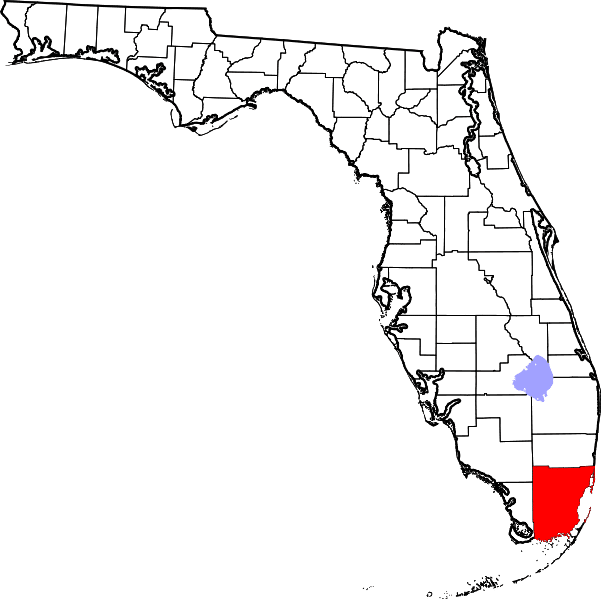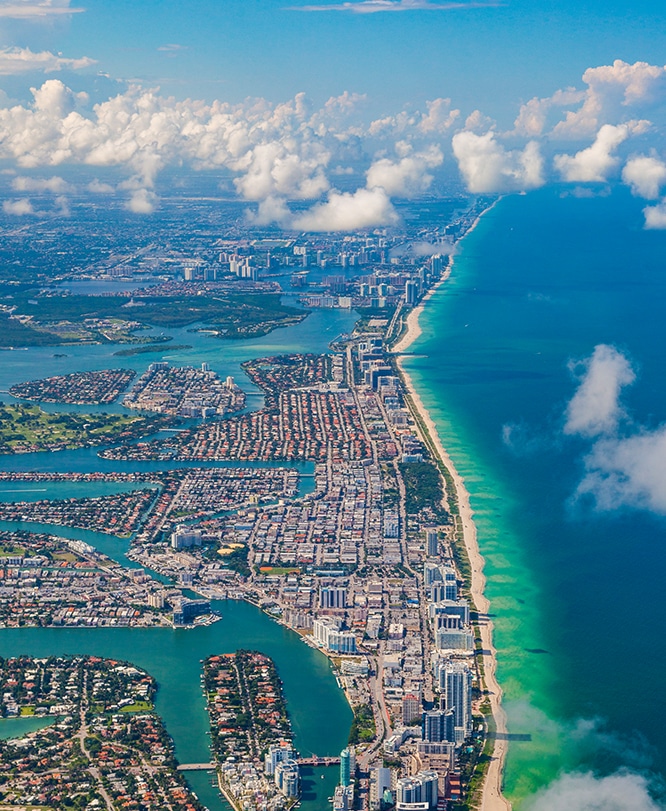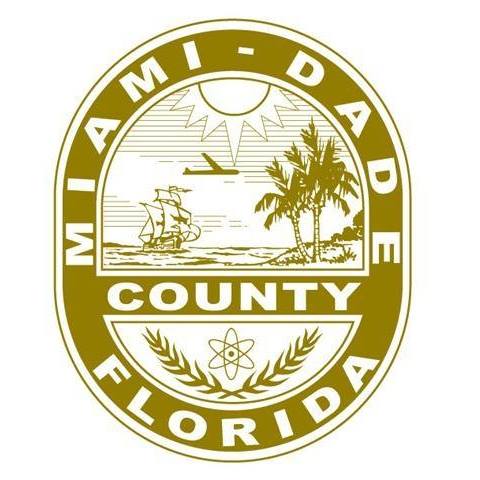Miami-Dade County Probate Process for Residents & Non-Residents
 In Florida, probate is a court-supervised process in which a deceased person’s assets are identified and beneficiaries are determined. The probate process is designed to ensure that potential creditors have an opportunity to pursue claims against the estate, as well as provide a forum for identifying the correct beneficiaries to receive the decedent’s property.
In Florida, probate is a court-supervised process in which a deceased person’s assets are identified and beneficiaries are determined. The probate process is designed to ensure that potential creditors have an opportunity to pursue claims against the estate, as well as provide a forum for identifying the correct beneficiaries to receive the decedent’s property.

Florida Probate Process
When a person passes away with a valid Last Will & Testament, the original document must be filed with the appropriate circuit court, also known as probate court. If the deceased was a resident of Key Biscayne or anywhere in Miami-Dade County, the Miami-Dade probate court would be responsible for handling the case. A Miami-Dade probate attorney can help you navigate the court system to ensure the process is properly followed.
If no valid Will exists, probate assets are distributed according to Florida’s intestacy statute, which outlines the inheritance rules based on family relationships. This process is overseen by the Miami-Dade probate system to ensure proper asset distribution.
Miami-Dade Probate Court Locations
In Miami-Dade County, the probate process is handled by the 11th Judicial Circuit Court. Depending on the petitioner’s address, the county will determine which courthouse the case is assigned to. There are 11 Courthouse locations in Miami-Dade County.
- Miami-Dade County Courthouse – 73 W. Flagler St. Miami, FL 33130
- Coral Gables Branch Courthouse – 3100 Ponce de Leon Coral Gables, FL 33134
- Hialeah Branch Courthouse – 11 E. 6th St. Hialeah, FL 33010
- Miami Beach Branch Courthouse – 1130 Washington Ave. Miami Beach, FL 33139
- Lawson E. Thomas Courthouse – 175 N.W. 1st Ave. Miami, FL 33128
- Miami-Dade County Children’s Courthouses – 155 N.W. 3rd St. Miami, FL 33128
- North Dade Justice Center – 15555 Biscayne Blvd. Miami, FL 33160
- Overtown Transit Village South – 601 N.W. 1 Ct., 2nd Floor Miami, FL 33136
- Richard E. Gerstein Justice Building – 1351 N.W. 12th St. Miami, FL 33125
- South Dade Justice Center – 10710 S.W. 211 St. Miami, FL 33189
- Joseph Caleb Center – 5400 N.W. 22nd Ave. Miami, FL 33142
Probate Assets
 The most relevant factor in determining if a probate is necessary, is assessing if there are any probate assets, as oppose to non-probate assets. Probate assets are those titled in the sole name of the decedent, and do not have a beneficiary designation or POD feature. All probate assets are frozen and can only be transferred through the probate process. There are many types of non-probate assets, such as real estate titled in the sole name of the decedent, jointly held property, IRAs and life insurance proceeds payable to a beneficiary, and more.
The most relevant factor in determining if a probate is necessary, is assessing if there are any probate assets, as oppose to non-probate assets. Probate assets are those titled in the sole name of the decedent, and do not have a beneficiary designation or POD feature. All probate assets are frozen and can only be transferred through the probate process. There are many types of non-probate assets, such as real estate titled in the sole name of the decedent, jointly held property, IRAs and life insurance proceeds payable to a beneficiary, and more.
The first step in identifying probate assets is to confirm how the decedent’s real estate is titled, by visiting the Miami-Dade Property Appraiser. If the property appraiser report and most recent deed confirm that the real estate, aka real property, is in the sole name of the decedent, then a probate will be required in order to eventually sell or transfer the property. Often the goal is to sell the piece of real estate during the probate process, and to have to proceeds divided among the identified beneficiaries. It is advisable to wait until an estate is open, and a personal representative is appointed before executing any type of sales contract.
The second step for identifying probate and non-probate assets is to check the mail of the decedent, since financial institutions and insurance companies will periodically send correspondence regarding accounts. The personal representative of the estate, or the immediate family members of the decedent, should have the decedent’s mail forwarded to a convenient location by requesting a change of address or mail forwarding with the United States Postal Service. The request can be made on the UPSPS website, or in person at a branch location.
Restricted Depositories
Miami Dade County, like Palm Beach County, has begun utilizing restricted depositories for most formal probate administrations. This means that the bank account which is set up in the name of the estate and is used to deposit estate assets will be a court restricted account. Unlike a normal bank account, where the owner can simply write a check to release funds, a restricted account requires a court order to release funds for any purposes, including the payment of expenses associated with the estate. Consult with an experience Miami-Dade County probate attorney for the best techniques for establishing a restricted depository and expediting the administration.
Ancillary Probate for Non-Residents
Ancillary probate refers to a secondary probate proceeding that takes place in any state other than the domiciliary state. Ancillary probate is necessary to transfer or sell real estate, aka real property, located in any state other than the decedent’s domiciliary state.
After someone passes away, the first step in the probate process is to establish the domiciliary estate in the decedent’s state of residence. Once a personal representative, or executor is appointed for the domiciliary proceeding, the next step is to petition to initiate the ancillary probate in the county in which the real estate is located.
As an example, John lives in North Carolina but owns a vacation home in Key Biscayne. When John passes away, his Last Will & Testament must be submitted to his local probate court in North Carolina to begin the domiciliary probate process. A second probate process must also be started in Miami-Dade County, Florida to transfer the home in Key Biscayne to his beneficiaries, or to clear title to a new owner via the sales process.
Generally, ancillary probate administration is required in Florida when someone who was not a Florida resident dies and:
- Owned Florida real estate
- Owned a Florida timeshare
- Owned Florida property or liability that would require the signature of an appointed personal representative in Florida for transfer, collect, or discharge
Ancillary probate in Miami-Dade, Florida can complicate the already time-consuming and sometimes costly probate process, but it is the only way to pass Florida real estate to the rightful beneficiaries. Because ancillary probate has the potential to prolong the domiciliary probate proceeding, it’s crucial to work with a skilled Florida ancillary probate attorney.
An experienced ancillary probate lawyer in Miami-Dade County can assist with every step of the probate process, and potentially serve as a personal representative to prevent potential delays and finalize the probate as quickly and smoothly as possible.
If you need assistance with probate in Miami-Dade County, Florida, contact the Florida Probate Law Firm for a free 30 minute consultation at (561) 210-5500. Our experienced team of Miami-Dade probate lawyers will help you navigate the process smoothly and efficiently.

The Florida Probate Law Firm proudly serves all municipalities in Miami-Dade County, FL
If you need assistance with probate in Miami-Dade County, Florida, contact the Florida Probate Law Firm for a free 30 minute consultation at (561) 210-5500.

